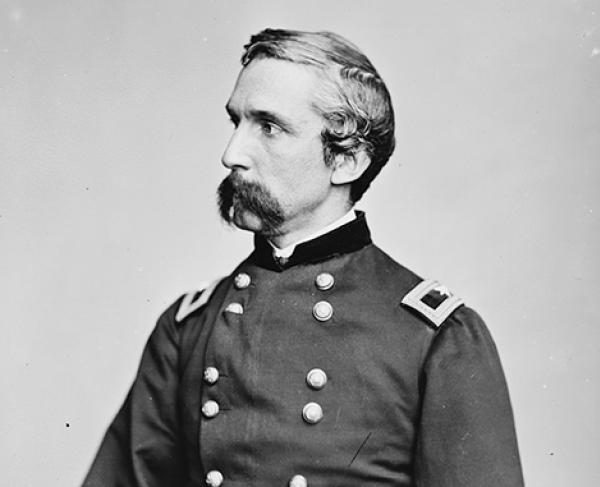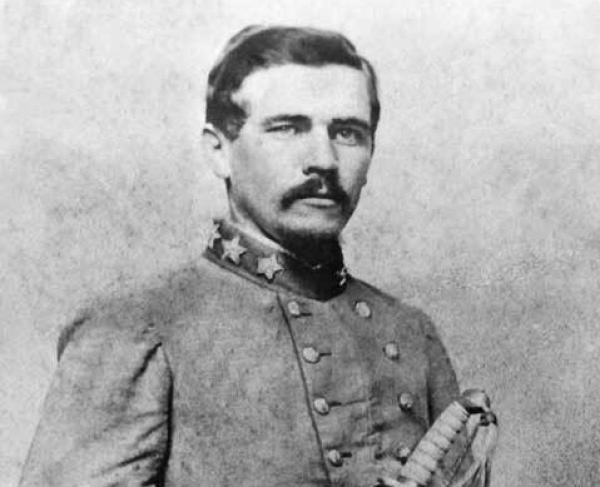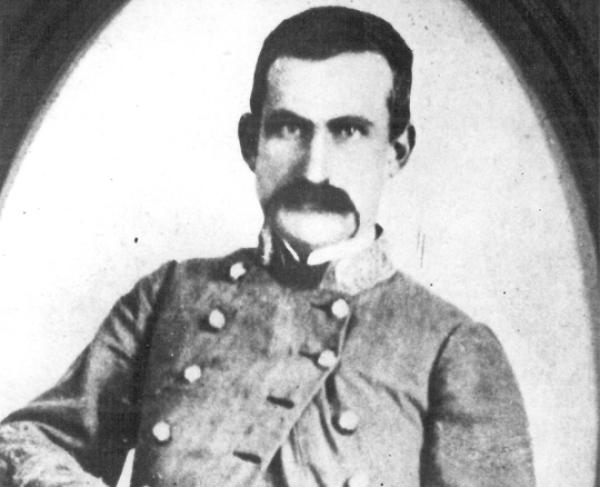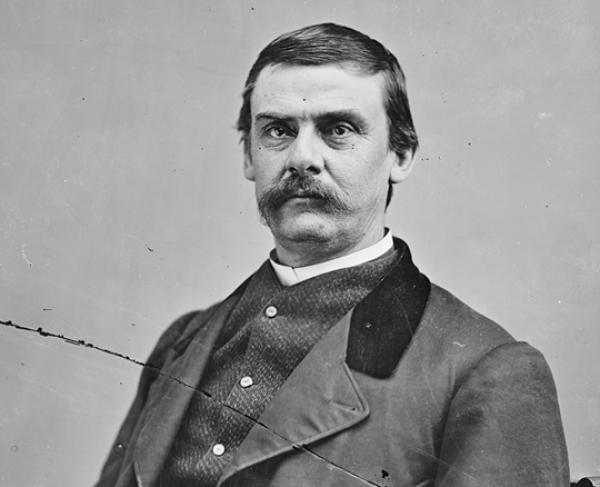Joshua Lawrence Chamberlain

A veritable icon of Civil War legend, Joshua Lawrence Chamberlain is best known for his heroic participation in the Battle of Gettysburg. Chamberlain and his regiment, the 20th Maine Infantry, gained notoriety for their desperate bayonet charge down Little Round Top on the Second Day of the Battle, a feat that figures prominently in Michael Shaara’s novel The Killer Angels and its movie adaptation, Gettysburg. This one deed, however, is only one facet of the man who later wrote “in great deeds something abides.”
Born in Brewer, Maine in 1828, Chamberlain was the eldest of five children born to Joshua and Sarah Brastow Chamberlain. The elder Chamberlain, an admirer of all things military, named his son after sea Captain James Lawrence, famous for his quote “don’t give up the ship.” His namesake, however, had more peaceful ambitions. The studious Lawrence Chamberlain graduated from Bowdoin College in 1852 where he was a student of Calvin Stowe (husband of the authoress, Harriet Beecher Stowe). In 1855, after attending Bangor Theological Seminary, Chamberlain and his new wife, Fannie, returned to Bowdoin to begin a career as a professor of languages and rhetoric.
The outbreak of war, however, weighed heavily upon Chamberlain, who desperately wanted to serve his country. Over the objections of the College, Chamberlain offered his services to the governor of Maine who appointed him Lieutenant Colonel of the newly raised 20th Maine regiment. The scholar-turned-soldier would take advantage of his position as second-in-command and studied “every military work I can find” under the close tutelage of his commander, West Point graduate Col. Adelbert Ames.
Though present at Antietam, Chamberlain and his regiment saw their first trial by fire in one of the doomed assaults on Marye’s Heights at Fredericksburg but missed a chance to be involved at the Battle of Chancellorsville due to an outbreak of smallpox. Losses at Chancellorsville elevated Col. Ames to brigade command, leaving Chamberlain to command the regiment in the next major engagement of the war, the Battle of Gettysburg.
On July 2, 1863, Chamberlain was posted on the extreme left of the Federal line at Little Round Top—just in time to face Confederate General John B. Hood’s attack on the Union flank. Exhausted after repulsing repeated assaults, the 20th Maine, out of ammunition, executed a bayonet charge, dislodging their attackers and securing General Meade’s embattled left. Though the exact origin of the charge is still the subject of debate, Congress awarded Chamberlain the Medal of Honor for “conspicuous gallantry.”
Shortly after Gettysburg, Chamberlain was given command of a brigade in the Fifth Corps and would retain it until the end of the war. Throughout the war, Chamberlain was wounded six times, most grievously at Petersburg in June 1864. Believing this wound to be mortal, Congress promoted Chamberlain to the rank of Brigadier General. Chamberlain, however, would survive the wound, and return to the front in time to play a pivotal role in the Appomattox Campaign. On April 12, 1865, Brigadier General Chamberlain received the Confederate surrender of arms. Rising to the occasion, the general ordered his men to salute their vanquished foes.
After the war, Chamberlain returned to Maine, where he served four terms as the state’s Governor. He later served as president of Bowdoin College alongside former general and Bowdoin alum, Oliver Otis Howard. Prolific and prosaic throughout his life, Chamberlain spent his twilight years writing and speaking about the war. His memoir of the Appomattox Campaign, The Passing of the Armies was published after his death in 1914.


